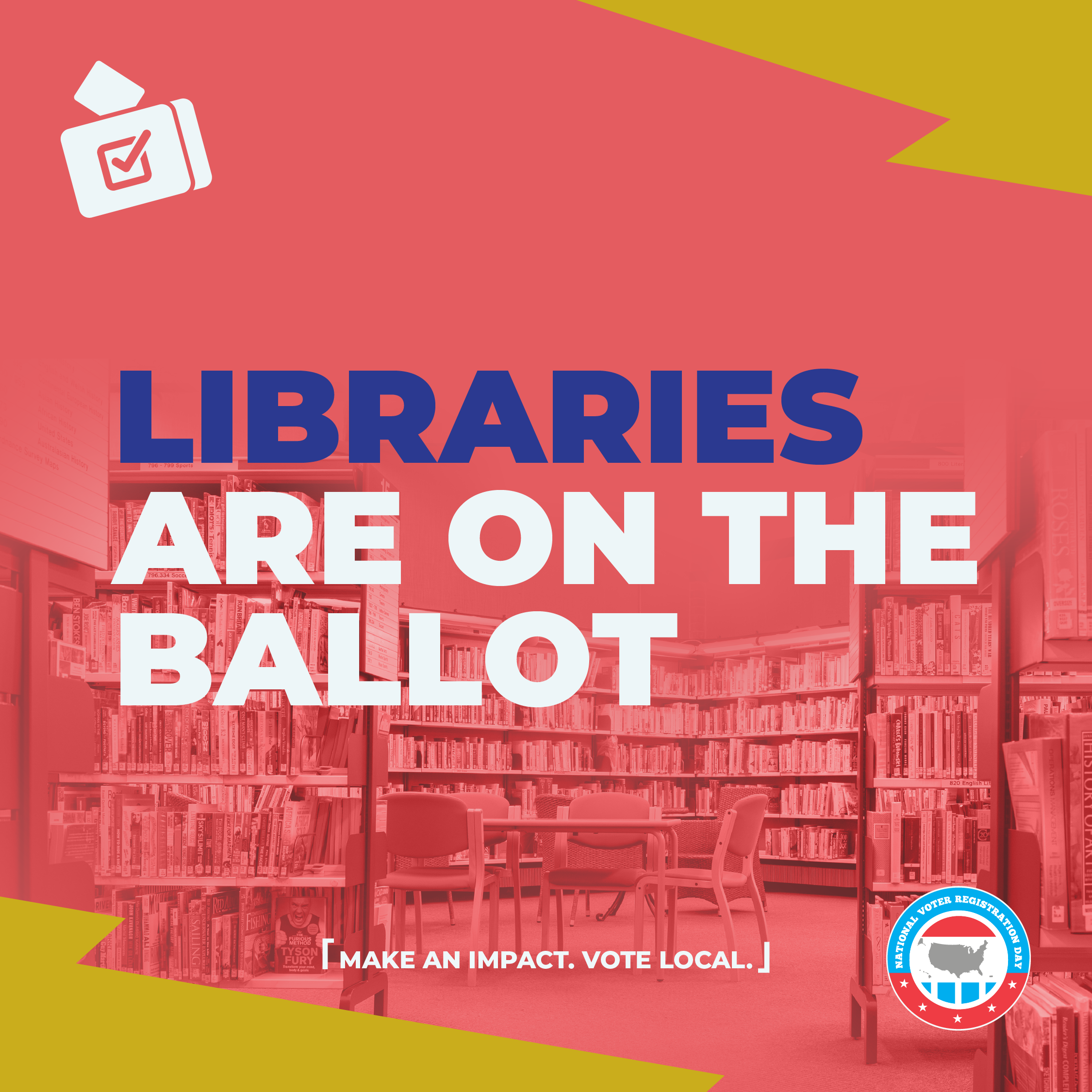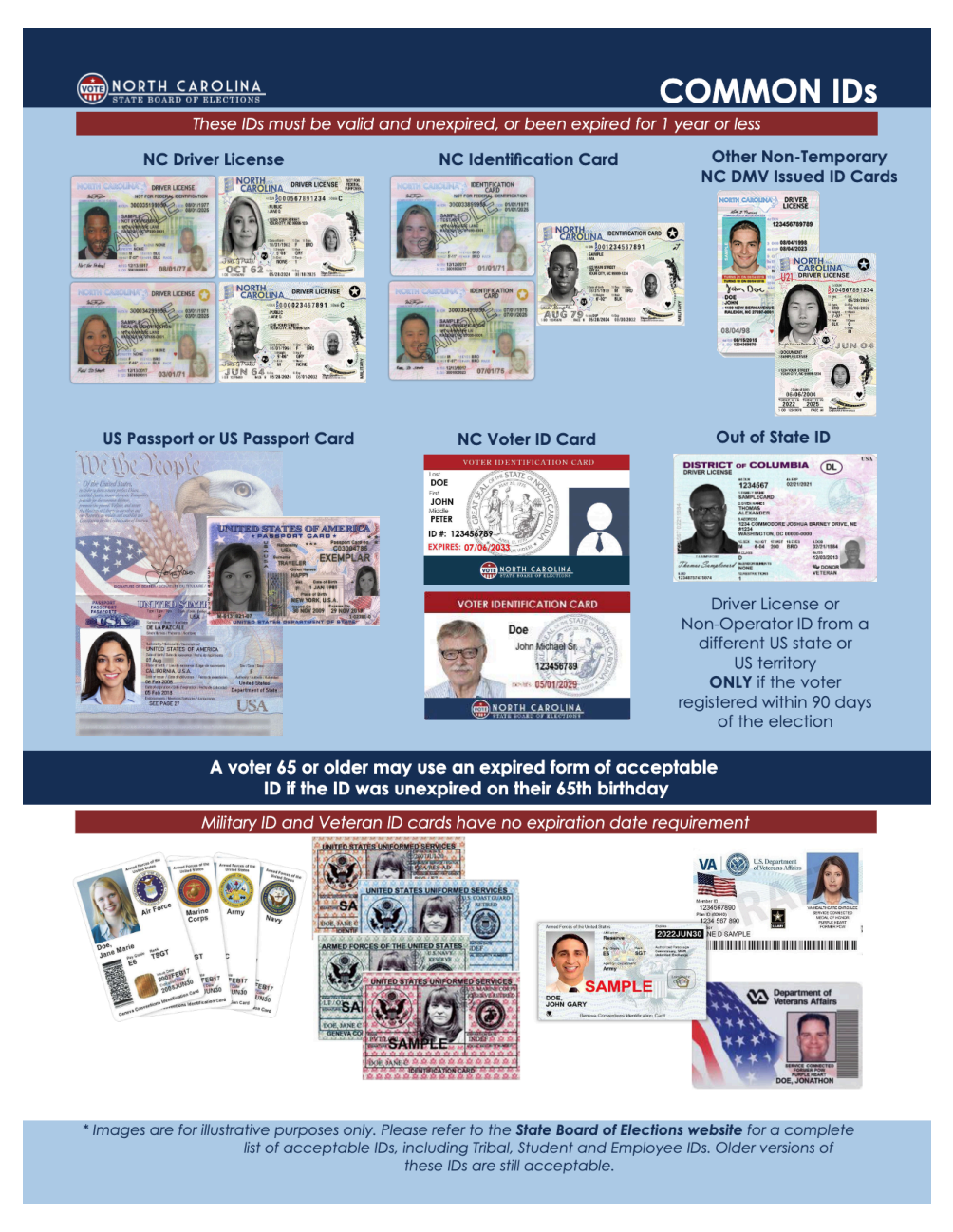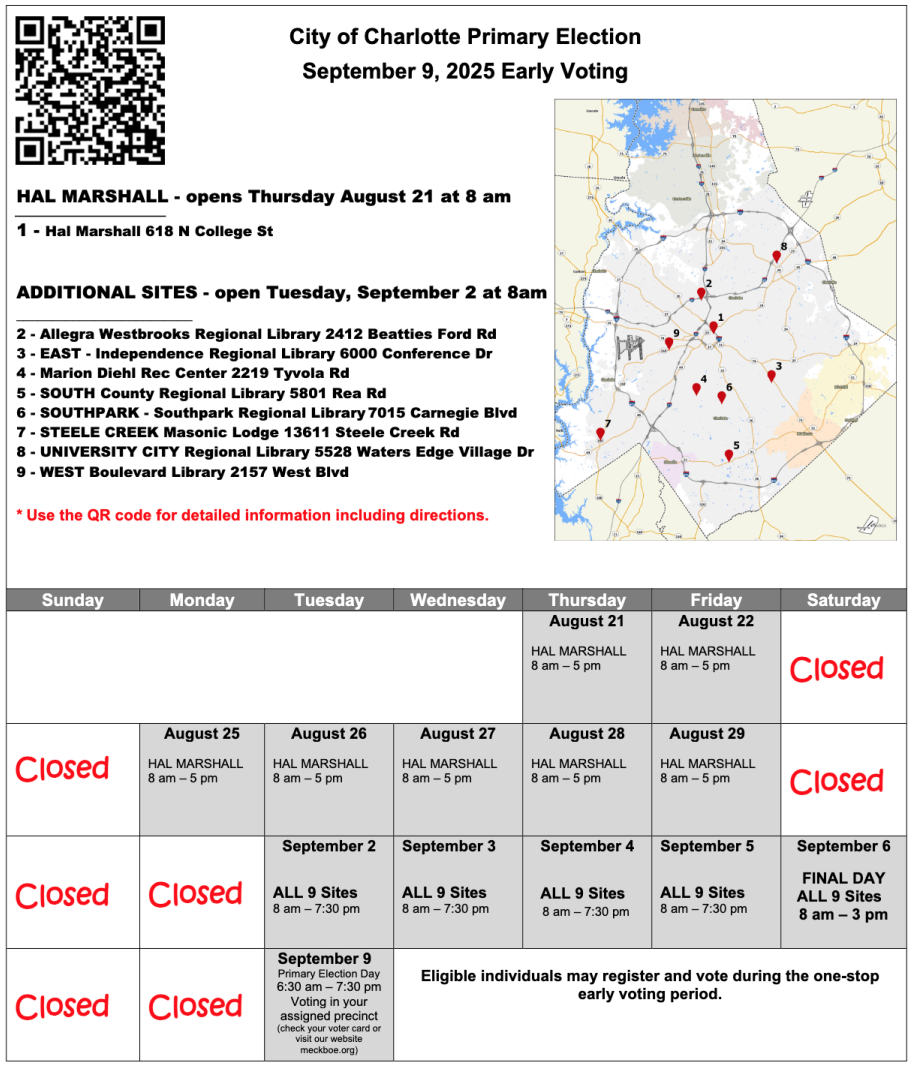Voting Toolkit
North Carolina Elections, 2025
Harnett
Nash
Orange
Pasquotank
Person
Randolph
Richmond
Vance
Wake
Find early voting sites and schedules in your county with the Early Voting Site Search, or here: Early Voting Sites for the Oct. 7, 2025 Municipal Elections (PDF)
North Carolina Counties with October 7, 2025, Elections
Burke
Camden
Catawba
Craven
Cumberland
Durham
Edgecombe
Franklin
Guilford
We think every voter should participate in local elections. This toolkit is designed to boost the likelihood that they will do just that. Civic participation is kind of our thing. And while we know it’s easy (and sometimes overwhelming) to get caught up in national politics, we know one of the ways to bring things back into focus is to engage at the local level.
To get things started, we've put together a simple and actionable guide to help prepare for local elections in North Carolina this year.
Start Here:
Check Voter Registration: Have you moved recently, or changed your name since the last election cycle? Even if you’ve voted at your current address before, it’s a good idea to verify your registration. In North Carolina, this can be done here. The standard deadline to register is 25 days before an election, but North Carolina offers a great backup option: same-day registration during the early voting period!
Ballot Research: Many local races, like those for school boards, are nonpartisan. This means researching beyond party affiliation. It means looking up your Sample Ballot, then reading up on candidate platforms and where they stand on issues that matter to you.
Voter ID: North Carolina voters are now required to show identification when voting. Read more here, and use these visual lists of acceptable IDs:
Learn More at NCSBE.Gov
Key 2025 Election Dates:
Tuesday, September 9: Partisan primaries for Charlotte, Sanford, and municipalities in Forsyth, Guilford, Lee, and Madison counties. Early voting for these elections runs from Thursday, August 21, to Saturday, September 6.
Tuesday, October 7: Second primary, primary, or general elections in various municipalities (look yours up here).
Tuesday, November 4: General election or runoff in various municipalities.
Local Issues = Local Impact
Beyond these key dates, it's important to remember the broader context of these elections. Town, city, and county governments—including mayors, city councils, school boards, county commissioners, and more —make crucial decisions that directly affect sustainability, growth, and community well-being. This includes managing city budgets, setting local tax rates, and deciding zoning laws, as well as directing funds for vital services like affordable housing, public utilities, and workforce development. By engaging in local elections and civics in general, residents can directly influence policy.
While voter turnout for national elections in North Carolina typically hovers around 50-60%, participation in municipal elections is often significantly lower, sometimes dipping below 20%.
This stark difference means that each vote carries disproportionate weight in local races.
In elections decided by just a few hundred votes, every ballot has a much greater potential to sway the outcome and directly influence modern policies and leadership.
This is why we say participating in local elections is so crucial, and often has an outsized impact.
Take action today and spread the word; together, we ensure local government reflects the needs of all.
*Please Note: The information presented here isn’t exhaustive. Always check with local boards of elections for the most accurate and specific information for your community.
Let’s Get Local: Charlotte, NC
With the September 9, 2025 Primary Elections behind us, we turn our focus to November 4th Elections in Charlotte.
Early Voting is Underway for Charlotte, North Carolina’s September 9th Primary Elections. Early Voting dates: August 21 - September 6, 2025.
Here’s a look at the Early Voting calendar for Charlotte, North Carolina’s September 9th Primary Elections.
Using this calendar, you can find a voting site, double-check the hours it’s open, grab a friend, and make a plan to vote together.
Don’t forget you’ll need to bring ID to the polls. Learn more about North Carolina’s relatively new Voter ID requirements here and below.
Ready to vote? Early voting in the City of Charlotte has changed.
Heads up: there's no early voting on Sundays anymore, and the whole early voting period might be shorter than you remember.
Plus, North Carolina voters need to bring a photo ID. These changes can make it a little harder to cast your ballot, so let's get ready.
Here’s the action plan:
Check your status: Look up your voter registration and polling places on the North Carolina State Board of Elections website. Find early voting dates on your local Board of Elections website.
Make a plan: Talk with friends, family, and neighbors. Decide when and how you’ll vote (Need to request a mail-in ballot? Want to vote early?). Share information and make sure everyone knows what's required to vote in 2025. Double check the list of acceptable voter ID’s, like this one from Mecklenburg County.
Share Resources: Resources like this Voter Toolkit, or our Civility Localized Get Civic Kit can help you and your community make a plan to vote. Visit https://vote.mecknc.gov/ if you’re in Charlotte, North Carolina. They've got everything you need to be prepared.
Charlotte, North Carolina’s primary elections on September 9th are a critical step in determining the future leadership of Charlotte's City Council. With the city's election cycle occurring in odd-numbered years, these primaries often decide who will ultimately take office. For instance, in some districts, such as Districts 1, 4, and 5, the primary winners will face no opposition in the November general election, effectively securing their seats on the council.
This makes the September 9th primary the only opportunity for voters to weigh in on who represents them in those races.
The Charlotte City Council consists of 11 members—four elected at-large by a city-wide vote, and seven elected from specific districts. Their decisions on policies, budgets, and local ordinances directly impact residents' daily lives, making every vote in the primary particularly important. Early voting for the September primaries began on August 21st and ends on September 6th. As a civic organization, we always recommend voting early, as some of the barriers to casting a ballot can be remedied in person during early voting.
Beyond Charlotte, NC
North Carolina has more than 550 cities, towns, and villages — also known as municipalities. Most municipalities in North Carolina conduct elections in odd-numbered years, including 2025. This is when voters choose who will represent them in local government offices, and conduct referenda on property taxes or other matters.
In 2025, there are three municipal election dates in North Carolina:
Tuesday, Sept. 9, 2025 (Partisan primary):
Forsyth County: Rural Hall, Tobaccoville
Lee County: Sanford
Mecklenburg County: Charlotte
Tuesday, Oct. 7, 2025 (Second primary, primary election, or general election, depending on election method):
Various municipalities
Tuesday, Nov. 4, 2025 (General election or runoff, depending on election method):
Various municipalities
Early voting dates for the November 2025 municipal elections are Thursday, Oct. 16, 2025, until 3 p.m. Saturday, Nov. 1, 2025. Early voting sites will be announced via NCSBE.gov .
Find early voting sites and schedules in your county with the Early Voting Site Search. Locations and voting hours for Forsyth, Lee, and Mecklenburg Counties are also available here:
Early Voting Sites for the Sept. 9, 2025 Municipal Elections (PDF)
Early Voting Sites for the Oct. 7, 2025 Municipal Elections (PDF)
Find more information about early voting at Vote Early in Person.
Together, we can work to increase voter participation in local elections. Follow us on social platforms to stay informed and spread the word on civic engagement.










